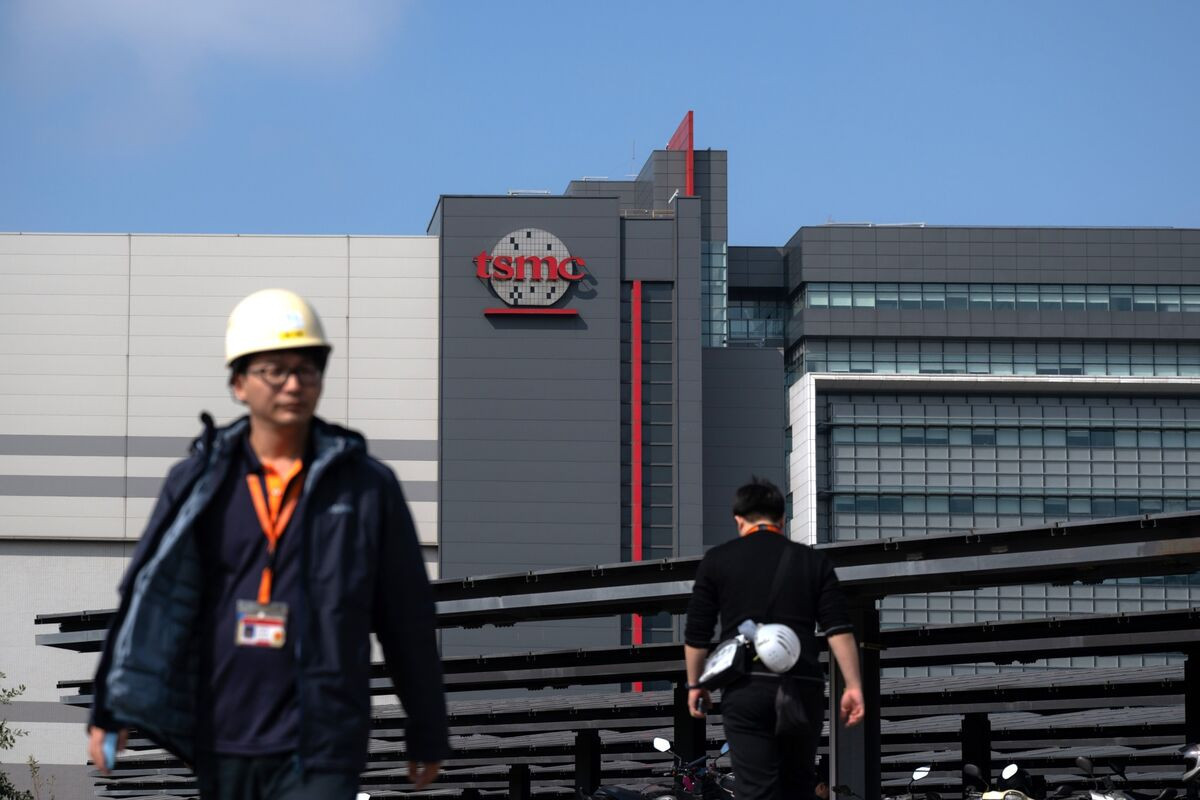
Date: 2025-03-14 Page is: DBtxt003.php txt00027009
LOCATION OF INDUSTRY
CHIP MANUFACTURING
Bloomberg: As TSMC and Foxconn expand their footprints across the world, other players will need to follow
CHIP MANUFACTURING
Bloomberg: As TSMC and Foxconn expand their footprints across the world, other players will need to follow

Moving on from China.Photographer: Mike Kai Chen/Bloomberg
Original article: https://www.bloomberg.com/opinion/articles/2024-06-09/tsmc-and-foxconn-will-guide-the-global-supply-chain
Peter Burgess COMMENTARY
Peter Burgess
As TSMC and Foxconn expand their footprints across the world, other players will need to follow.
Written by Tim Culpan ... Tim Culpan is a Bloomberg Opinion columnist covering technology in Asia. Previously, he was a technology reporter for Bloomberg News.
June 9, 2024 at 3:00 PM EDT
A splintering of global supply chains, driven by both political and business considerations, has hundreds of manufacturers and logistics providers debating where to go next. They’d be well advised to take their cues from two Taiwanese companies who’ve led the charge.
Taiwan Semiconductor Manufacturing Co. is the world’s largest maker of chips, with clients including Apple Inc., Nvidia Corp. and Advanced Micro Devices Inc. Foxconn Technology Group, whose flagship is Taipei-based Hon Hai Precision Industry Co., assembles those components into end devices. Apple’s iPhones and Nvidia’s artificial intelligence servers are among the most famous of Foxconn’s products, but its reach extends into industrial sectors including Tesla Inc. cars, factory-automation systems provider Siemens AG and even an Israeli satellite maker.
Their size, technical dominance and global influence make these two Taiwanese companies irreplaceable — no other single business could jump in to fill the gap should either disappear overnight. That’s the concern policymakers from Washington to Canberra have in the event tensions between Taipei and Beijing escalate to the point of military conflict. But both firms are thinking less about war and more about how globalization can extend their lead.
“Instability in the Taiwan Strait is definitely one supply chain-resilience consideration,” TSMC Chairman and Chief Executive Officer C.C. Wei said after its annual shareholder meeting this month. Yet the chipmaker also seen benefits from globalization “because we can get the best from around the world.”
Foxconn has also been touting the upside of its expanded reach. “Our diversified global footprint is an important part of Hon Hai’s competitive advantage,” CEO Young Liu told shareholders recently, noting that it has 205 sites in 24 countries. “In the current geopolitical situation, that advantage is even more important and obvious.”
Two decades after joining the World Trade Organization, China’s position as factory to the world has shifted from being a win-win for clients and suppliers to a massive risk. Labor shortages, rising costs and stiff local competition have many looking elsewhere. Japanese and South Korean carmakers are withdrawing, US power-tool maker Stanley Black & Decker shut its factory, and Nike Inc. has moved away.
TSMC and Foxconn don’t supply directly to all of these companies, but they’re only one step away. Almost every device on the planet is made with, or by, the goods that come out of their factories. TSMC, for example, not only controls most production of leading-edge chips, it’s the single-largest supplier of older (also called legacy) 28-nanometer semiconductors that go into toys, and industrial and agricultural equipment. Foxconn, though best known for churning out consumer devices, is a major player in industrial manufacturing and factory automation.
That means the site of new facilities from either company act as a guidepost for where the rest of the supply chain is already going, or ought to move next.
Take TSMC. Although it doesn’t make cars, the company has chosen locations at the center of the automotive supply chain. Volkswagen AG, BMW AG and Porsche all have facilities near Dresden, the site of TSMC’s forthcoming European fab. Co-investors in that factory include Robert Bosch GmbH, Infineon Technologies AG and NXP Semiconductors NV. As a result, anyone who wants to supply materials or equipment to TSMC will need to have operations near the German city.
For its factory in Japan’s Kumamoto prefecture, TSMC is teaming up with Sony Group Corp., Toyota Motor Corp., and automotive-electronics supplier Denso Corp. This facility will serve Japan’s world-leading carmaking, industrial and consumer electronics industries. The expansion plan, announced in 2021, spurred suppliers Mitsubishi Electric Corp., Sumco Corp. and Kyocera Corp. to outline new investments in the area.
TSMC’s facility in Arizona is a different story. There’s no business case to be made for setting up there: The region lacks any related industries of note. But pressure from clients, and incentives from US governments at the state and federal level, left the Taiwanese company little choice. Even then, suppliers were quick to follow, including industrial companies LCY Chemical Corp. and Topco Scientific Co.
Foxconn’s decision to expand in Mexico, India and Southeast Asia as well as numerous tie-ups with European industrial companies like Siemens, ZF Group and Stellantis NV show that its diversification is not only geographic but also sector-based. The company is pushing into factory automation, transportation and logistics, aerospace, and alternative energy. Many of its current vendors built facilities in Shenzhen to enjoy the benefits of being close to China’s manufacturing heartland. This Foxconn effect was repeated over a decade ago when it set up near central China’s Zhengzhou city and suppliers followed suit.
Now, because of their crucial role at the center of industry, not only will the same entourage of vendors to TSMC and Foxconn need to tag along on their global journey, anyone else expecting to be part of international supply chains will have no choice but to follow, too.
More From Bloomberg Opinion:
- Supply Chains Are Breaking. They'll Rebuild Stronger: Tim Culpan
- India’s Tech Hub Trapped Between SVB and Traffic: Andy Mukherjee
- China's Factories Are Humming. Nobody Is Buying: Tim Culpan
- Want more Bloomberg Opinion? OPIN
. Or you can subscribe to our daily newsletter.
Tim Culpan is a Bloomberg Opinion columnist covering technology in Asia. Previously, he was a technology reporter for Bloomberg News. Up Next